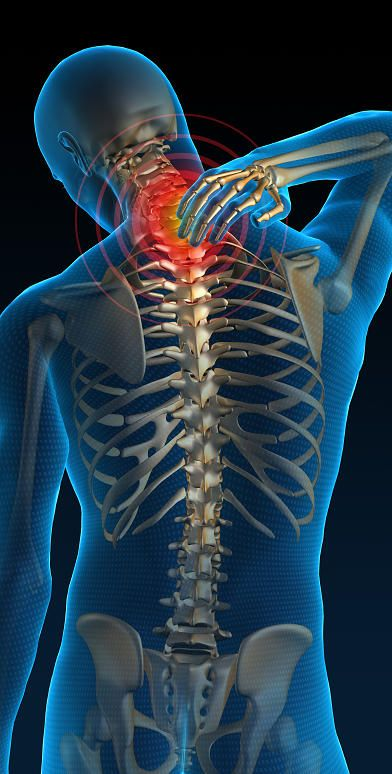Overview :
Dealing with muscle pain can be debilitating, impacting daily activities and overall well-being. Finding the best anti-inflammatory medicine for muscle pain relief is crucial for managing discomfort and promoting recovery. In this comprehensive guide, we’ll delve into the most effective anti-inflammatory medicines available, empowering you to alleviate muscle pain and regain your quality of life.
soma muscle relaxer (Pain O Soma) tablet is a muscle relaxers. It is used to treat people with painful muscle spasms,(which are rapid, uncontrollable movements of a muscle) and other painful joint conditions, such as stiffness or tightness. Pain that can’t be treated with normal drugs, like pain from a serious injury or accident or pain after surgery, can be relaxed with medicines like Pain O Soma 500.

Understanding Muscle Pain
Muscle pain, also known as myalgia, can occur due to various reasons, including overexertion, injury, tension, or underlying medical conditions. It often manifests as aching, soreness, or stiffness in the affected muscles, limiting movement and causing discomfort.
Nonsteroidal Anti-Inflammatory Drugs (NSAIDs)
Overview
Nonsteroidal anti-inflammatory drugs (NSAIDs) are commonly used for pain relief and inflammation reduction in muscle pain. These medications work by inhibiting the production of prostaglandins, chemicals that contribute to pain and inflammation.
Common NSAIDs
- Ibuprofen: Available over-the-counter and by prescription, ibuprofen is highly effective in reducing muscle pain and inflammation.
- Naproxen: Another NSAID, naproxen provides long-lasting relief and is often used for chronic conditions such as arthritis.
- Diclofenac: Available in various forms, including oral tablets and topical gels, diclofenac is frequently prescribed for severe muscle pain.
carisoprodol 350 mg tablet is a medicine used to treat pain caused by musculoskeletal injuries. Patients should consult this drug if they are experiencing muscular or bone ache. The activity of the drug merely helps to relieve discomfort and does not heal the damage.The medicine’s effect will inhibit signal transmission from the damaged areas to the brain, providing patients with Pain Relief experience

Acetaminophen
Overview
Acetaminophen, also known as paracetamol, is a mild analgesic commonl use for treating mild to moderate muscle pain. Unlike NSAIDs, acetaminophen does not possess significant anti-inflammatory properties but can provide effective pain relief.
Considerations
- Acetaminophen is generally well-tolerate when taken at recommend doses but can cause liver damage when exceeding the maximum daily dosage.
- It is often use as an alternative to NSAIDs for individuals who cannot tolerate NSAID medications due to gastrointestinal issues or other concerns.
Topical Analgesics
Overview
Topical analgesics are medications applie directly to the skin to provide localize pain relief. These products come in various forms, including creams, gels, and patches, and work by numbing the pain receptors in the skin.
Common Ingredients
- Capsaicin: Derive from chili peppers, capsaicin is often use in topical creams and patches to provide relief from muscle pain and stiffness.
- Menthol: Menthol-based creams and gels create a cooling sensation on the skin, helping to alleviate muscle discomfort and soreness.
Corticosteroids
Overview
Corticosteroids are potent anti-inflammatory medications that may be prescribe for severe or chronic muscle pain that does not respond to other treatments. These medications work by suppressing the immune system’s inflammatory response and reducing swelling and pain.
Administration
- Corticosteroids may be administere orally, intravenous , or via injections directl into the affecte muscles.
- While corticosteroids can provide significant relief, they are typicall use on a short-term basis due to the risk of adverse effects with long-term use.
Nonsteroidal Anti-Inflammatory Drugs (NSAIDs)
Understanding NSAIDs
Nonsteroidal anti-inflammatory drugs (NSAIDs) are a common class of medications use to reduce inflammation and relieve pain. They work by inhibiting the production of prostaglandins, which are chemicals in the body that contribute to inflammation and pain.
Effectiveness for Muscle Pain
NSAIDs such as ibuprofen, naproxen, and diclofenac are often effective in relieving muscle pain caused by inflammation. They can help reduce swelling, alleviate discomfort, and improve mobility, making them a popular choice for various types of muscle pain, including strains, sprains, and overuse injuries.
Acetaminophen
Understanding Acetaminophen
Acetaminophen, also known as paracetamol, is a mild analgesic commonly use to relieve pain and reduce fever. Unlike NSAIDs, acetaminophen does not have significant anti-inflammatory properties, but it can still provide effective pain relief for certain types of muscle pain.
Effectiveness for Muscle Pain
While acetaminophen may not directly target inflammation, it can effectively alleviate muscle pain caused by tension, stiffness, or mild injuries. It is often use as an alternative to NSAIDs for individuals who cannot tolerate the gastrointestinal side effects associated with NSAID use.
Muscle Relaxants
Understanding Muscle Relaxants
Muscle relaxants are medications that help reduce muscle spasms and promote relaxation in the muscles. They are commonly prescribe for muscle pain associate with tension, spasms, or musculoskeletal conditions.
Effectiveness for Muscle Pain
Muscle relaxants such as cyclobenzaprine and baclofen can be highly effective in relieving muscle pain and stiffness by promoting muscle relaxation. They work by targeting the central nervous system to reduce muscle spasms and improve range of motion, making them a valuable option for certain types of muscle pain.
Corticosteroids
Understanding Corticosteroids
Corticosteroids are potent anti-inflammatory medications that can be administer orally, topically, or via injection to reduce inflammation and alleviate pain. They are often use for severe or chronic muscle pain that does not respond to other treatments.
Effectiveness for Muscle Pain
Corticosteroid injections can provide targeted relief for muscle pain by directly reducing inflammation in the affected area. While they can be high effective in providing short-term relief, they are typicall reserv for specific cases of severe or chronic muscle pain due to the potential for advers effect with long-term use.
In Summary :
Finding the best anti-inflammatory medicine for muscle pain relief requires careful consideration of individual needs and preferences. Whether you opt for NSAIDs, acetaminophen, topical analgesics, or corticosteroids, it’s essential to work closely with your healthcare provider to determine the most appropriate treatment plan for your specific condition.

